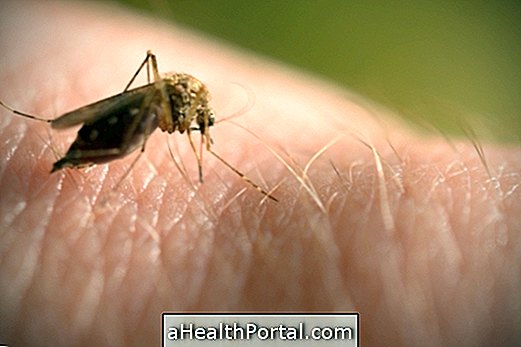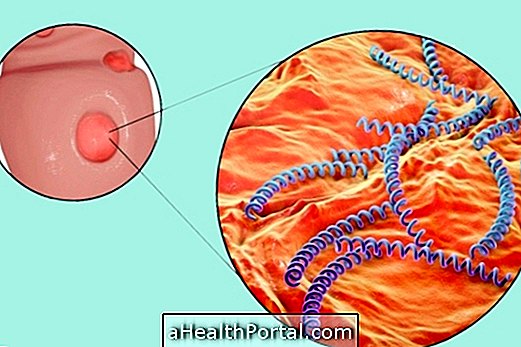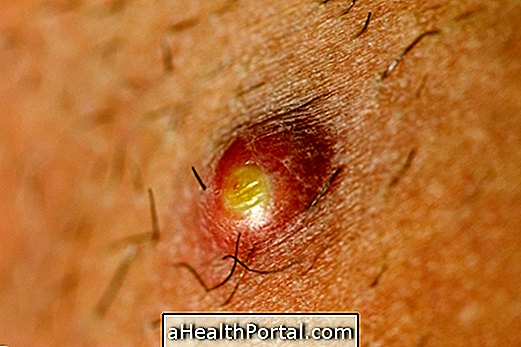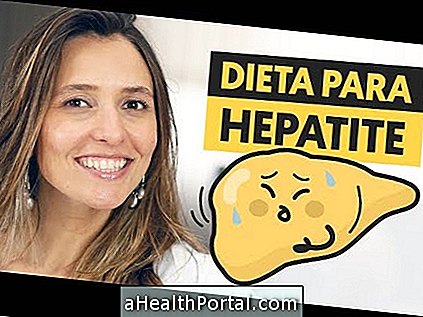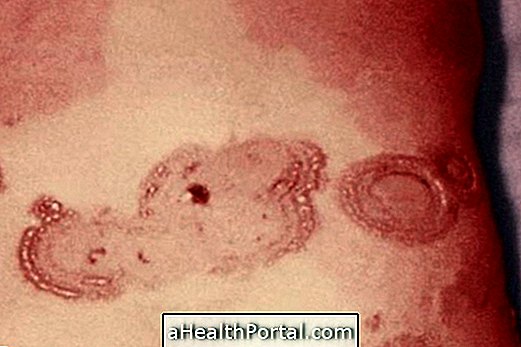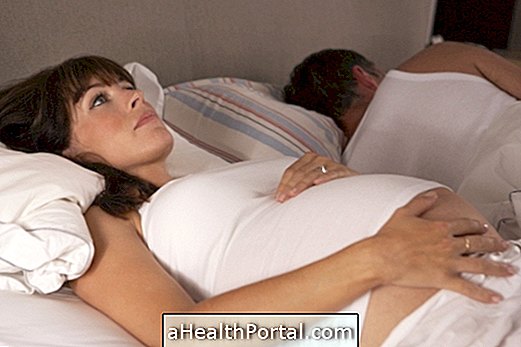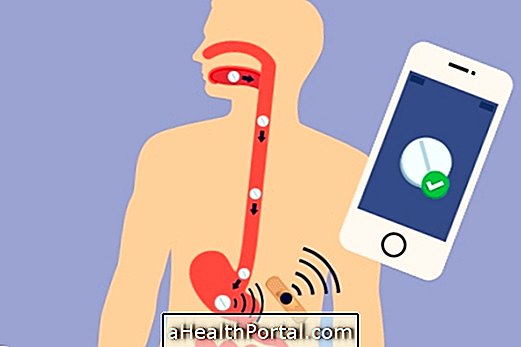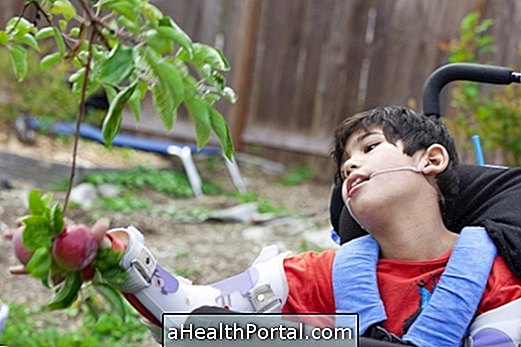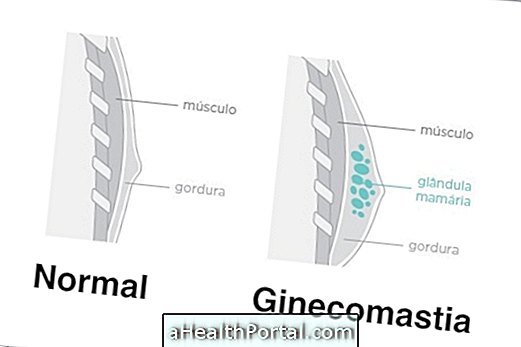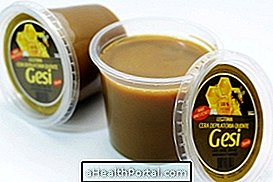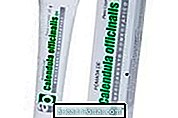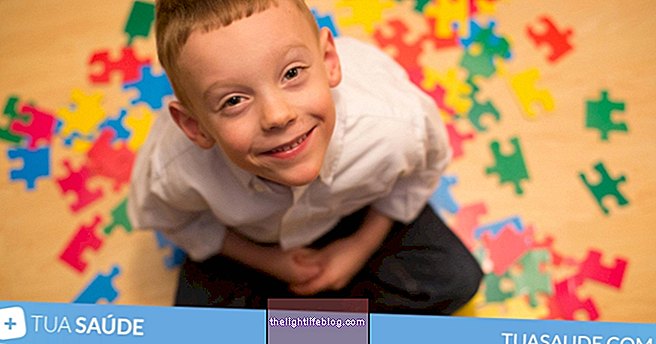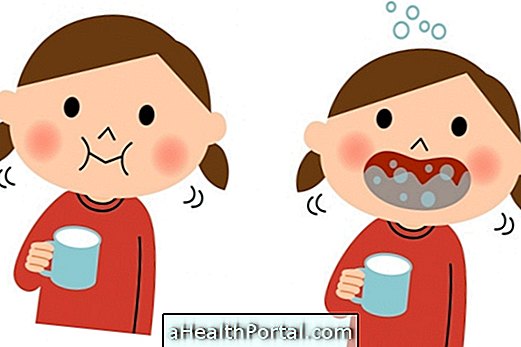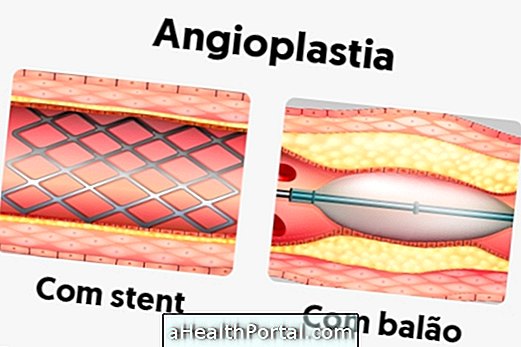Rotavirus is a virus that causes severe diarrhea and vomiting, an infection called Rotavirus that especially affects infants and young children, between 6 months and 2 years of age, which transmits very easily from one child to another.
The illness lasts about 8 to 10 days and the symptoms may come on suddenly and the main treatment is to prevent the child from becoming dehydrated. It is not recommended to give the child food or medicine that holds the intestine before the first 5 days of diarrhea because it is necessary that the virus is eliminated through the feces, otherwise there may be complications.
The diarrhea caused by Rotavirus is intense, strong and has a very strong odor, with a smell of rotten egg, and is also very acidic and can leave the entire region of the baby very reddish, with a greater ease of rashes. So, with each episode of diarrhea, it is best to remove the diaper, remove excess stool and then wash the baby's private parts with water and moisturizing soap, putting a clean diaper to follow.
Rotavirus Vaccine is the best way to protect your child from this terrible diarrhea.
Symptoms of Rotavirus Infection
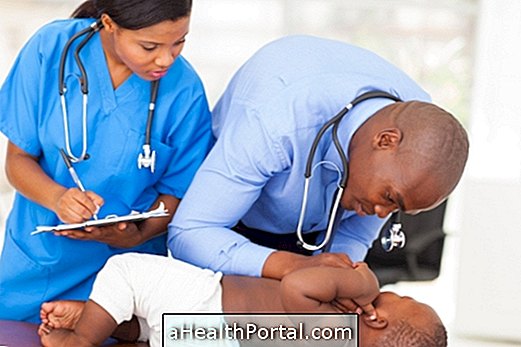
Symptoms of rotavirus infection usually come on suddenly. Initially the child may seem a little quieter or complain of pain in the belly, until there is the first episode of diarrhea and vomiting, in addition to high fever of 39 to 40ºC.
Another important symptom are vomiting, however, some babies and children only have diarrhea, especially if they are not very affected. However, some are severely affected by the virus and can become dehydrated within hours.
The main signs of dehydration are dry mouth, dry lips and deep eyes, as if the child was very tired. Check out other signs and symptoms of dehydration in children.
How transmission occurs
A child infected with rotavirus infects other children even before symptoms develop and up to 2 months after the infection has been controlled and the main route of infection is contact with the feces of the infected child. The virus can survive for several days outside the host and is very resistant to soaps and disinfectants.
There are many types or strains of rotavirus and children up to 3 years of age can present the infection several times, although the following should be weaker.
Even children who are vaccinated may have this disease, however, in a lighter version, although there may still be vomiting and diarrhea, the infection is milder. The rotavirus vaccine is not part of the Ministry of Health's basic vaccination schedule, but can be administered after the pediatrician's prescription. This vaccine is very effective and protects the baby and children from many different strains of Rotavirus.
Treatment for Rotavirus Infection
Treatment for Rotavirus infection can be done with simple measures that ensure that the child is not dehydrated because there is no specific treatment for this virus. To lower the fever, your pediatrician may prescribe Paracetamol or Ibuprofen at intercalated doses.
Parents should take care of the child by providing water, fruit juice, tea and light meals such as soups or light snacks to ensure the child receives vitamins, nutrients and minerals so that he or she can recover faster. However, it is important to provide fluids and food in small amounts so that the child does not vomit soon afterwards.
Learn what else you can do to make your child healed faster in: How to treat Rotavirus infection.
